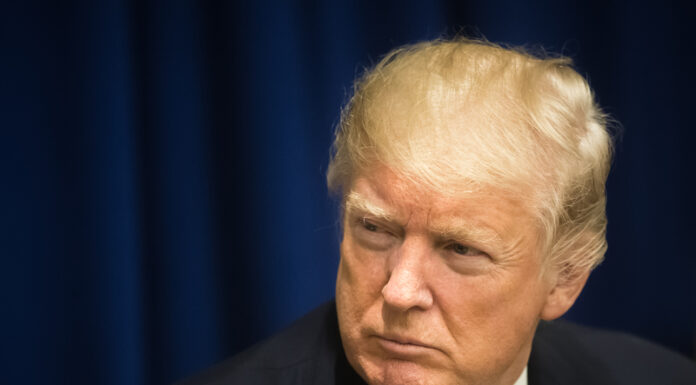President Donald Trump signed an executive order on Tuesday, March 25, to enhance proof of citizenship requirements for voter registration nationwide.
The order marks a significant change in federal election policy, potentially impacting voter registration processes nationwide, particularly for individuals lacking immediate access to citizenship documentation.
Details of the Executive Order
The executive order directs the U.S. Election Assistance Commission (EAC) to update the federal voter registration form to mandate documentary proof of citizenship, such as passports or birth certificates. This is a notable shift from current practices, which do not require such documentation.
The order also proposes withholding election funding from states that fail to implement this requirement for voters registering with the federal form.
Historically, a Supreme Court ruling required states to accept the generic voter registration form provided by the EAC for federal elections. The new executive order seeks to bypass this by altering the federal form’s requirements.
Furthermore, the order instructs the Department of Homeland Security to collaborate with Elon Musk’s newly established Department of Government Efficiency to examine state voter rolls for potential foreign national registrations. Those identified would be reported to state and local election officials overseeing voter rolls.
The directive also calls on the Attorney General to pursue “enforcement action” against approximately 20 states, including several key battleground states, that accept mail ballots postmarked by Election Day but arriving afterward.
Official Responses
In reaction to the order, EAC Chairman Donald Palmer stated, “The U.S. Election Assistance Commission is carefully reviewing the President’s Executive Order and determining the next steps in enhancing the integrity of voter registration and state and federal elections.” Palmer noted that the commission plans on “consulting with state and local election officials” as they proceed.
Criticisms and Concerns
The order has raised concerns among voting rights advocates and Democratic officials. Critics argue that requiring proof of citizenship documentation could disenfranchise legitimate voters, particularly those from vulnerable communities.
Colorado Secretary of State Jena Griswold, a Democrat, criticized the order: “Trump’s executive order is unlawful. It would prevent eligible Americans from exercising their sacred right to vote. The Trump administration is weaponizing the federal government and trying to make it harder for voters to fight back at the ballot box.”
Richard Hasen, an election law expert at the University of California, Los Angeles, wrote in a blog post that the order is “an executive power grab, ” with the “potential to disenfranchise millions of voters.” Hasen further stated, “The aim here is voter suppression, pure and simple.”
Voting rights advocates have expressed particular concern over the directive for DHS to review voter rolls, arguing that immigration databases are not designed for this purpose and could wrongly flag naturalized citizens for removal from voter rolls without adequate protections.
Support from Conservative Groups
Conservative organizations have welcomed the order. Hans von Spakovsky of the Heritage Foundation’s Election Law Reform Initiative praised the action, stating that President Trump was taking necessary steps to reform the election process.
The order also allows states access to federal databases for voter roll maintenance, a provision likely to be supported by Republican-led state governments advocating for stricter voting requirements.
Implementation and Legal Challenges
While the executive order outlines significant changes to election practices, the full impact will not be evident until implementation begins. State and local officials primarily manage elections in the United States, with the federal government playing a limited role. Trump’s order uses several tools, including the threat of withholding federal funding, to drive changes in election policies.
Elements of the order may face legal challenges as implementation progresses, particularly given the existing Supreme Court precedent on voter registration requirements.








